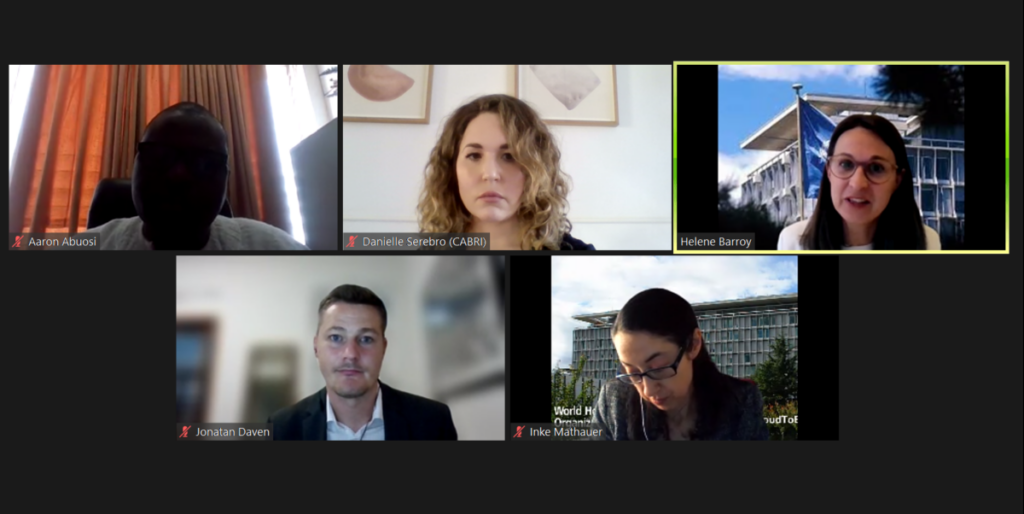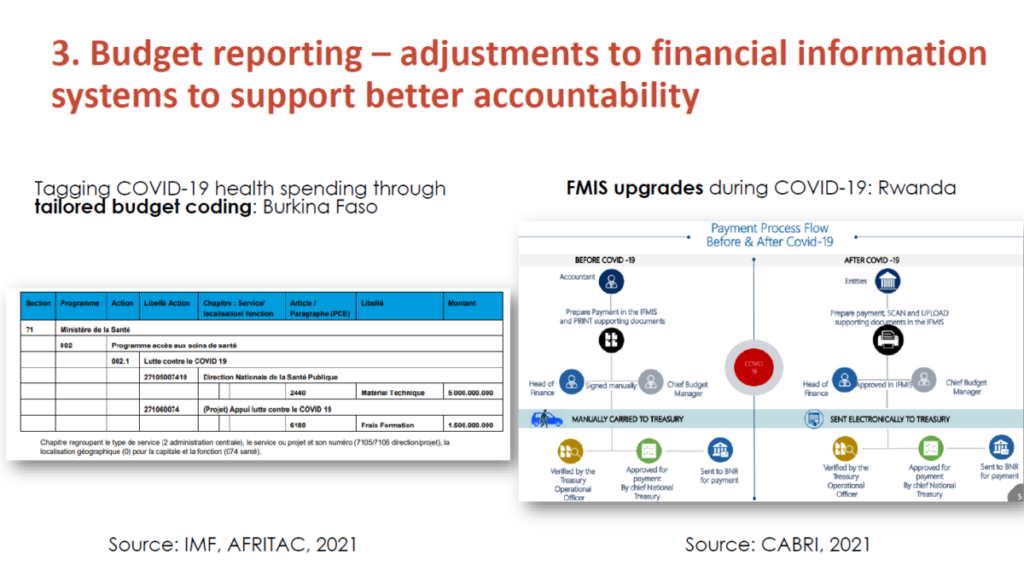
On 7 March, Danielle Serebro from the CABRI Secretariat joined a session arranged by the World Health Organisation (WHO) at the sixth African Health Economics Association (AfHEA) conference on how Public Financial Management (PFM) systems and strategic purchasing arrangements in Africa adjusted during the COVID-19 pandemic.

The session focused on the barriers and enablers for an effective response, key adjustments that were introduced in countries to facilitate the health sector response, and lessons for how to rebuild and strengthen PFM systems and strategic purchasing arrangements to make them more responsive to future pandemics and capable to sustain efforts towards Universal Health Coverage.
Scheduled until 11 March, this conference seeks to promote debate and discussion among African and international researchers, experts and policy makers on resilient health systems and the role of health economics and policy research in resilient health systems in Africa.
The sub-themes of the conference are:
- Decolonizing Health Economics and policy research and the drive for greater equity and inclusion.
- Vaccine economics: equity, distribution, financing, trade and the lessons learnt during the covid-19 pandemic.
- What adjustments are required to make health and health financing systems in Africa more resilient to pandemics?
- Cost-effectiveness of addressing social/underlying determinants of poor health vs. funding medical interventions.
- Building back better health systems: the role of innovation, multi-sectoral approaches and global financial architecture in building resilient health systems in Africa.
- UHC, politics, policy processes, and reforms during covid-19 pandemic.
- The role and use of data and evidence for policy decisions in a pandemic (the case of covid-19).
- Looking to the future: what plans are in place to mitigate the impact of covid-19 post the pandemic?